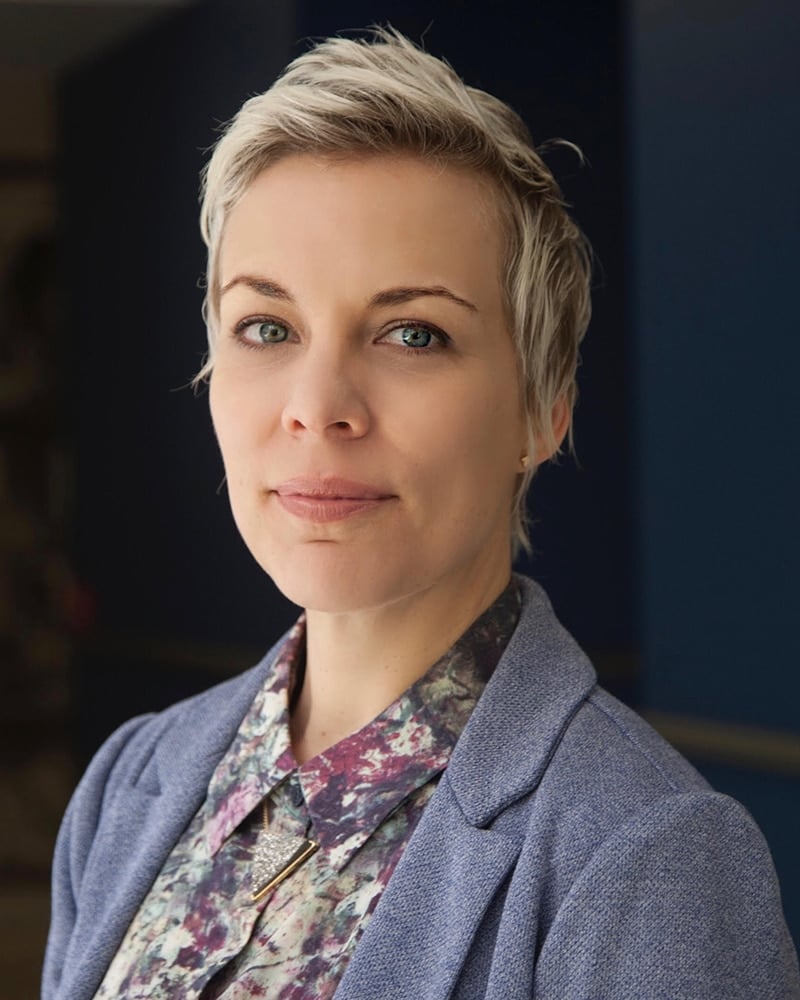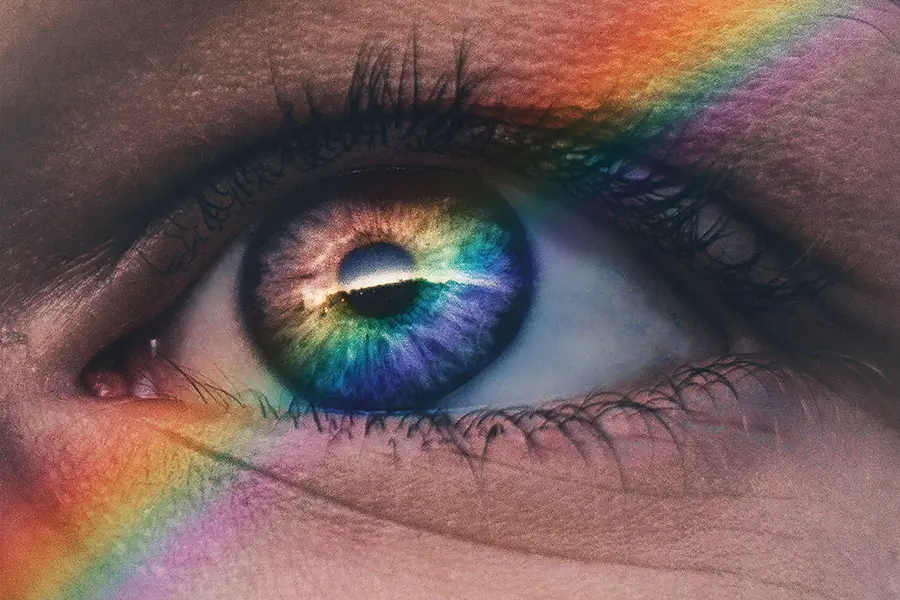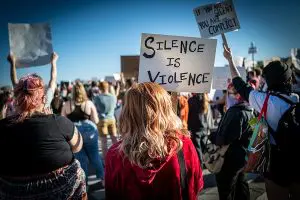Psychedelic substances like LSD may always be associated with the 1960s counterculture and its radical values of peace, love, and understanding. But while hippies dropped acid to expand their minds and embrace the era’s sexual revolution, many psychedelic researchers weaponized those substances to “cure” homosexuality, transgenderism, and other behaviors that were considered forms of mental illness back then.
Among those researchers is Harvard psychologist and psychedelic pioneer Timothy Leary. In a 1960 interview with Playboy, Leary advocated for LSD as a tool for combating homosexuality:
“[T]he fact is that LSD is a specific cure for homosexuality,” Leary said. “It’s well known that most sexual perversions are the result not of biological binds, but of freaky, dislocating childhood experiences of one kind or another. Consequently, it’s not surprising that we’ve had many cases of long-term homosexuals who, under LSD, discover that they are not only genitally but genetically male, that they are basically attracted to females.”
Leary’s position on homosexuality, however, evolved over the years, and in his 1988 book Musings on Human Metamorphosis, he wrote: “Since homosexuality has always been a part of every society, you have to assume that there is something necessary, correct and valid—genetically natural—about it.”
Back in the Sixties, a number of researchers of the time saw psychedelics as a useful tool for conversion therapy, using LSD, as well as ayahuasca and peyote to “treat” homosexuality. And many of those researchers believed that their controversial “cure” was working. For example, a 1967 study conducted by researchers Bonnie Golightly and Peter Stafford (who later wrote the Psychedelics Encyclopedia) recommended “that LSD be used to treat transvestism, fetishism, and sadomasochism in the same way that it could treat homosexuality.”
The clinical use of psychedelics in conversion therapy dwindled in the 1970s as America’s War on Drugs made it nearly impossible to study prohibited substances for any purpose.
How to Grow Shrooms Bundle
Take Both of Our Courses and Save $90!
Those restrictions have loosened in recent years, yet LGBTQI+ communities are still marginalized within psychedelic research, according to Alexander Belser, a psychologist and clinical supervisor at Yale who specializes in psychedelic support. He says this marginalization is the product of greater biases in the field of psychological and psychiatric research.
It’s only recently that this has come to the fore. In 2019, the Chacruna Institute for Psychedelic Plant Medicines, an organization founded by anthropologist Bia Labate to fuel cultural and political reflections on psychedelic science, held the first conference, called Queering Psychedelics, bringing visibility to the need for more queer representation in the psychedelic field. Chacruna has been at the forefront of lifting up LGBTQI+ voices in the psychedelic space (including those highlighted in this article), but the psychedelic space still has a long way to go.
“There’s a longstanding history in almost all psychological, psychiatric research of heteronormative bias among the researchers, among the funding bodies, among the sort of leaders in theory,” Belser told DoubleBlind last fall. “This has informed the sort of structural oppression of LGBTQI+ people, and unfortunately the psychedelic community also inherits much of that.”
Belser is combating that oppression by speaking out against these biases and advocating for research into how psychedelics can help gender and sexual minorities understand and embrace who they are.
And he’s not the only one trying to right the historical wrongs of psychedelic studies. Here are four other researchers and educators who are studying how psychedelics can help sexual minorities.
Terence Ching
Doctoral candidate in clinical psychology (University of Connecticut)

Drug researcher Terence Ching learned to understand and embrace his identity as a sexual minority through psychedelics. But instead of ayahuasca, Ting’s revelations came through an MDMA-assisted psychotherapy session offered by a clinic in Colorado.
“With the help of my two therapists in a supportive and healing setting, I experienced…visions during my dosing session, which has led to insights that have evolved from the integration session leading up to the time of this writing,” he notes in a 2020 article for the Journal of Psychedelic Studies.
Ting adds that while many of his visions are closely tied to his racial and national identity as well as his identity as a sexual minority, he believes that the insights derived from his visions can help other members of LGBTQI+ communities develop greater self-compassion.
“It is important to note that these visions and imagery, although highly idiosyncratic, have led to insights, which I believe might plausibly extend to others with similar identities,” he writes.
For Ching, those symbolic visions have taken the forms of a “neon purple hedgehog” that served as his “spirit animal guide” on his spiritual journey and a “giant horseshoe crab” that “grew the fin of a mermaid’s tail on its back, shimmering iridescent colors off its scales that dispersed throughout the undercurrents.”
Jae Sevelius
Clinical psychologist (University of California, San Francisco)

Jae Sevelius is calling on fellow researchers to fill major gaps in psychedelic studies by working with more transgender and gender diverse people.
Of all psychedelic substances, MDMA has shown exceptional promise as a treatment for post-traumatic stress disorder (PTSD). Those findings could be especially beneficial to trans and gender diverse people, who experience PTSD at a higher rate than other demographics.
“Extreme disparities exist in rates of PTSD, with people of color and transgender and gender diverse people experiencing particularly high rates of trauma compared to white and cisgender people,” Sevelius wrote in 2019 article for MAPS. “Trans and gender diverse people experience the same life struggles and traumas as cisgender people, but there are unique themes that trans and gender diverse people may be working with, many of which may be especially amenable to psychedelic therapy.”
Unfortunately, researchers don’t know if MDMA can help trans and gender diverse people because of significant gaps in current studies.
“[T]he number of trans and gender diverse participants in MDMA-assisted psychotherapy for PTSD remains unknown, primarily because this information has not been collected and/or reported, but anecdotal estimates are very low,” Sevelius said. “If we are to ensure access to the most cutting-edge psychedelic therapies for the communities that need them the most, we must continue to educate ourselves and evolve our therapeutic approaches to address their unique yet pervasive experiences of trauma.”
To resolve that problem, Sevelius is urging researchers to work with more trans and gender diverse participants to see if psychedelics can treat experiences of trauma that are tied to their identities.
Ariel Vegosen
Gender Inclusivity Trainer/educator

While Jae Sevelius is fighting to make clinics more welcoming for trans and gender diverse people, Ariel Vegosen is creating similar safe spaces outside the lab. Last summer, Vegosen and a team of 100 volunteers opened the very first Queerdome, a support site set up at Burning Man to help gender and sexual minorities having difficult psychedelic experiences during the event.
While Burning Man already had spaces to help people reduce the likelihood of being harmed during adverse drug trips, Queerdome is the first that was specifically designed for LGBTQ+ communities. That designation is crucial to ensuring the best support for gender and sexual minorities, according to Vegosen.
How to Grow Shrooms Bundle
Take Both of Our Courses and Save $90!
“Queer people are looking for a safe space where they majority of the sitters identify as part of the LGBTQ community,” they told VICE last fall. “If somebody comes in [to Queerdome], they don’t have to be afraid about being mis-pronounced; they don’t have to be afraid about people misunderstanding their sexuality.”
The success of the launch at Burning Man has inspired Vegosen and their team to open more safe spaces at other events across America. So don’t be surprised if you see a Queerdome in your neck of the woods someday.

DoubleBlind is a trusted resource for news, evidence-based education, and reporting on psychedelics. We work with leading medical professionals, scientific researchers, journalists, mycologists, indigenous stewards, and cultural pioneers. Read about our editorial policy and fact-checking process here.

DoubleBlind Magazine does not encourage or condone any illegal activities, including but not limited to the use of illegal substances. We do not provide mental health, clinical, or medical services. We are not a substitute for medical, psychological, or psychiatric diagnosis, treatment, or advice. If you are in a crisis or if you or any other person may be in danger or experiencing a mental health emergency, immediately call 911 or your local emergency resources. If you are considering suicide, please call 988 to connect with the National Suicide Prevention Lifeline.



